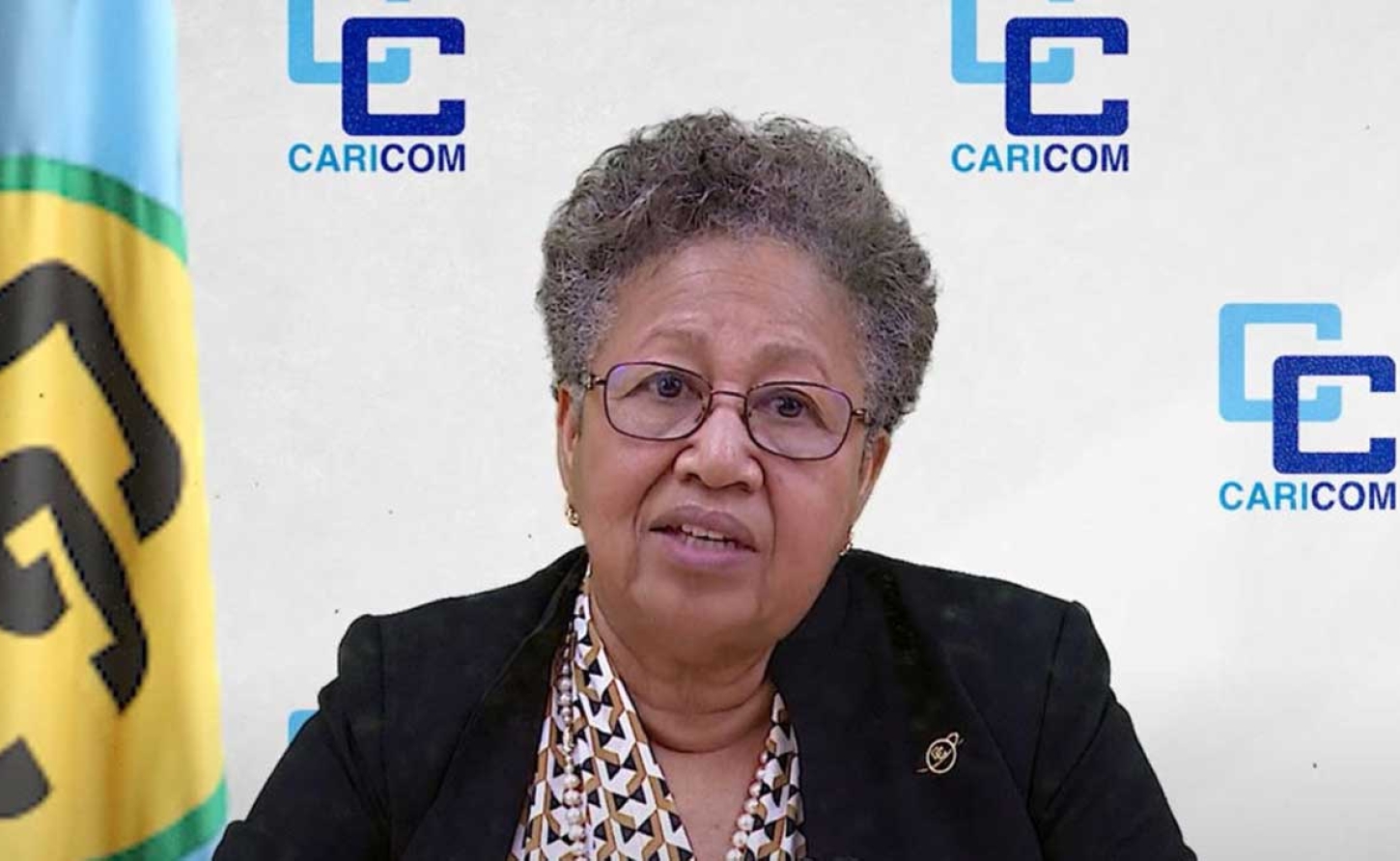CARICOM Secretary-General Rallies Regional Negotiators Ahead of COP30 Climate Summit

Dr. Carla Barnett emphasizes need for "strategic political coordination" and "moral clarity" as Caribbean prepares for crucial Brazil negotiations
CASTRIES, Saint Lucia – Caribbean Community (CARICOM) Secretary-General Dr. Carla Barnett issued a clarion call for regional unity and strategic coordination on Wednesday as ministers gathered in Saint Lucia for the second preparatory meeting ahead of next month's COP30 climate summit in Brazil.
Speaking to ministers responsible for the environment, Dr. Barnett emphasized that the negotiations demand "the highest level of strategic political coordination, moral clarity and regional solidarity" as the region confronts what she characterized as an existential threat bearing down disproportionately on Caribbean nations.
The 30th Conference of the Parties (COP30) to the United Nations Framework Convention on Climate Change, scheduled for November in Belém, Brazil, represents a critical juncture for Caribbean states. The summit will mark the first assessment of the Global Goal on Adaptation, evaluate progress on the Loss and Damage Fund, and shape the New Collective Quantified Goal on climate finance—all priority issues for the region.
Speaking Truth to Power
Central to Dr. Barnett's message was the imperative to "speak our truth"—a phrase she repeatedly invoked to underscore the Caribbean's moral authority in climate negotiations. She reminded attendees that CARICOM member states collectively contribute less than one percent of global greenhouse gas emissions while bearing a disproportionate share of climate change impacts.
"We do not cause climate change. We bear the burden of climate change," Dr. Barnett declared. "And that burden will continue to grow as long as global emissions continue to grow."
The Secretary-General catalogued the tangible threats facing the region: rising sea levels endangering coastlines and cultural heritage, intensifying hurricanes, prolonged droughts, ocean acidification, and saltwater intrusion. These phenomena, she noted, are not abstract concerns but "lived realities for our farmers, fisherfolk, tourism workers, and families across every Member State and coastal community."
Climate Finance Takes Center Stage
Dr. Barnett identified climate finance as "the cornerstone" of CARICOM's advocacy, expressing frustration with the gap between international pledges and actual delivery. She criticized the current system for being slow, fragmented, and inaccessible, with Small Island Developing States facing "complex bureaucratic hurdles, eligibility constraints, and inadequate support for adaptation and loss and damage."
CARICOM's demands for COP30 are specific and forceful: a scaled-up Loss and Damage Fund with direct access for Small Island Developing States; a robust New Collective Quantified Goal that reflects "the real cost of climate action" and includes sub-targets for adaptation and resilience; comprehensive reform of the multilateral climate finance architecture; and recognition of SIDS' unique vulnerabilities in finance eligibility criteria.
The Secretary-General also advocated for innovative financing mechanisms, including debt-for-climate swaps, blue bonds, parametric insurance, and blended finance models to unlock resources for resilience and sustainable development.
Biodiversity and Climate Convergence
Beyond finance, Dr. Barnett highlighted the integration of biodiversity protection with climate action. From Bahamian and Belizean coral reefs to the rainforests of Suriname and Guyana, the region harbors extraordinary biodiversity that serves as "climate assets"—mangroves buffering storm surges, forests sequestering carbon, and healthy reefs supporting livelihoods.
"At COP 30, we will advocate for greater integration of biodiversity and climate agendas," she said, calling for increased support for ecosystem-based adaptation and community-led conservation.
A Long Journey Continues
In her closing remarks, Dr. Barnett reminded ministers that COP30 is "not an endpoint, but another brief stop on a long and difficult journey, thirty years so far." She invoked the late Sir Shridath Ramphal's exhortation to "sing from the same hymn sheet," urging unified action as the region prepares to showcase not just its vulnerability but its vision and leadership at the CARICOM Pavilion in Brazil.
The Secretary-General's address underscored a fundamental tension: while CARICOM seeks support for mitigation and adaptation strategies, the region's ultimate fight for survival hinges on whether developed nations will "meaningfully accept their responsibility for generating the largest portion of the greenhouse gases" driving global warming.
As November approaches, the Caribbean's smallest nations prepare to deliver their largest message on the world stage.
-30-
